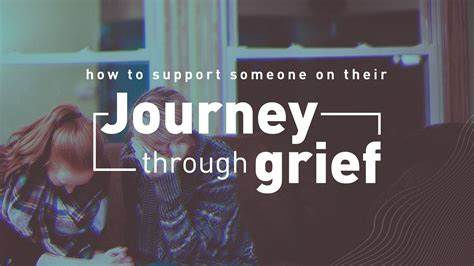I’ve said it before and I'll say it again, grief changes people. We just can’t help it. We aren’t the same person we were before our loss, especially if it was a traumatic one. The human brain is fascinating but absolutely insane at the same time. It’s incredible the magnitude of which it operates. Reminding us of things, trying to protect us from others, it’s just so wild to me. When I tell people that grief changed me, most don’t understand it and that’s OK. Until you’ve experienced it first hand, you may never know how deeply it can change a person.
I follow a variety of grief accounts on social media and I find some just so spot on that I thought it would be nice to share. They are beyond relatable and nice to know you aren’t the only one possibly feeling this way or the only one unsure of what to do next. Since grief affects every aspect of our life, let's look together.
5 Things Grief Can Teach Us About Life
Every minute spent with people we love is precious
Never let an opportunity go by to tell someone you love them
Every season is hard in its own way. Don’t spend too much time wishing for things to be easier.
Social media is endless. But time with your loved ones is limited. Prioritize accordingly.
No one makes it off this planet alive. Be quick to recognize joy, look for wonder and love yourself
GRIEF IS WEIRD. People get strange. People get angry and sad and empty.
How Grief Rewires the Brain
The brain’s response to grief: The brain interprets traumatic loss as a threat to survival and defaults to protective survival and defense mechanisms. This response engages the fight or flight mechanism, which increases blood pressure and heart rate and releases specific hormones.
Grief can cause changes in memory, behavior, sleep, and body function, affecting the immune system as well as the heart. It can also lead to cognitive effects, such as brain fog. The brain’s goal? Survival
Grief is a normal protective process. This process is an evolutionary adaptation to promote survival in the face of emotional trauma.
When faced with trauma, the brain can change by forming new connections between nerves to adapt. This is called neuroplasticity, which helps us cope with life changing events.
Some stress can’t be good for the brain, improving memory and reducing fear. But too much stress, especially over a long time, can weaken nerves, harm memory and increase fewer, making it hard to focus on anything but survival.
Healing from grief and trauma is possible. Practices like mindfulness, writing in a journal, talking to a counselor, doing creative activities, or meditation can help the brain recover and restore feelings of safety and calmness needed to move forward in life.
How Grief Affects You At Work
Grief doesn’t take a break when you’re on the clock: While some people find comfort in maintaining their normal routines, others may need to make adjustments to cope with their loss. It’s important to be honest with yourself about how you’re adapting to grief while still managing your responsibilities at work.
Grief can show up at work in different ways, like: Zoning out in meetings grief-induced brain fog takes over. Struggling to focus on tasks when running on fumes. Getting struck with strong emotions that make you feel unmotivated and unproductive. Memories hitting you out of nowhere, disrupting your workflow.
But here’s the thing, you can take steps to manage grief at work: Talk to your boss about what’s going on and see if there are any benefits or flexible options available like time off, mental health days or working from home. Let your team know what you need and what you expect, so everyone is on the same page. Take breaks during the day, whether that’s taking a walk, or finding a quiet place to think. Lean on coworkers who get what you’re going through and can list or help out.
Even though grief is really hard, it can also lead to some unexpected good things at work: Deepening connections with colleagues who have gone through similar experiences or who offer genuine support during your difficult time, Discovering a renewed sense of purpose or motivation in your work as you navigate your grieving process. Feeling touched by the kindness and understanding of your team members, which can foster a more supportive and empathetic work environment.
Remember, there is no one size fits all approach to managing grief at work. You’re allowed to prioritize your well being and communicate your needs openly with your employer. By being honest with yourself and others, you can create a supportive environment that allows you to grieve at your own pace while still doing your job.
There’s many of these that I can relate to far too well. I find myself saying often, ‘I don’t like this, I don’t want to feel this way, I never had this problem before’. Even though I’m proactive in my healing journey, there is still so much to work through, so many intrusive thoughts to not give in to, so many memories, so many triggers. I’m sensitive to things I never was before, I’m detached from reality a lot of the time, sleepless nights, my terrible memory, constant worry, I move through life on autopilot and just hope that one day it will become a pinch easier. If not easier, at least lighter and less debilitating.









Comments